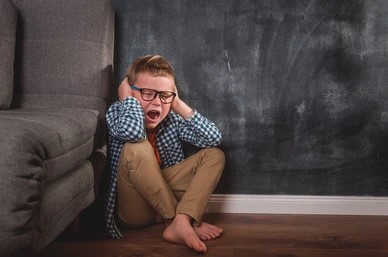
Emotional and Behavioral Disorders in Children
Emotional and Behavioral Disorders in Children https://kupplin.com/wp-content/uploads/2022/03/Emotional-and-Behavioral-Disorder-in-Children.jpg 388 257 kupplinadmin kupplinadmin https://secure.gravatar.com/avatar/6eec4427dd031e16c8da4c63019a7497?s=96&d=mm&r=g- kupplinadmin
- no comments
Mental illness is the leading root cause of different diseases that can badly affect a person’s way of thinking, perception, daily conduct, or mood. It becomes difficult for the person to cope with his job. It has a severe effect on a person’s productivity and triggers his emotion, making it difficult for him to focus on his work.
It also affects your relationships with your family and loved ones. You will also be frustrated and angry over small things and prefer being alone to spending time with others. Mental illness, together with stress, can worsen your condition. However, it is not impossible to overcome this condition. People also use medicines and go for counseling sessions, which significantly impact their mental condition.
What is Behavioral Disorder?
Usual behavioral problems in teenagers include oppositional defiant disorder (ODD), conduct disorder (CD), and attention deficit hyperactivity disorder (ADHD). Boys are more likely to be affected by behavioral disorders than girls. These mental health issues can be treated by having therapy sessions, medications, and education.
Types of Behavioral Disorder
We will now learn about the different types of behavioral disorders in children. Unfortunately, all three types of this mental illness share common symptoms, making it challenging to identify the right category and generally take time.
It is also possible that your child might be suffering from two categories at the same time. And the worst thing is that your child can become addicted to drugs, and the reason might be the daily conflicts in your house.
Oppositional Defiant Disorder (ODD)
This mental disease can be easily detected in children under the age of 12 years. The following indications will help you in identifying the behavioral disorder in your child.
- They can get easily angry, irritated, or annoyed over petty things
- You will also notice them arguing with their elderlies
- Refuse to obey orders
- More likely to blame themselves for any misdeeds or misfortune
- Frequent high temper issues
- Always seem to annoy or irritate others
- Low frustration tolerance
- Low self-esteem
Conduct Disorder
Children that suffer from conduct disorder (CD) are referred to as ‘wicked kids.’ This is because of their bad behavior and refusal to obey their parents or elders. It has been found that five percent of children aged ten years are suffering from CD. These are some of the highlighted symptoms that are found in children with CD:
- They use weapons in physical fights.
- They have criminal behavior like breaking into houses, stealing, and causing destruction.
- They are always keen to start a fight.
- They lack empathy for others.
- They frequently refuse to obey elders and parents.
- They are aggressive and ruthless towards animals and people.
- They are involved in sadistic behavior like physical abuse or bullying.
Conclusion
Thorough research has proved that the management and treatment of these behavioral disorders are possible. It includes different methodologies, therapies, and medications that can be helpful in the incomplete healing of disorders. In addition, these therapies can help them improve their communication skills socially and control their thoughts.
- Posted In:
- Uncategorized

Leave a Reply